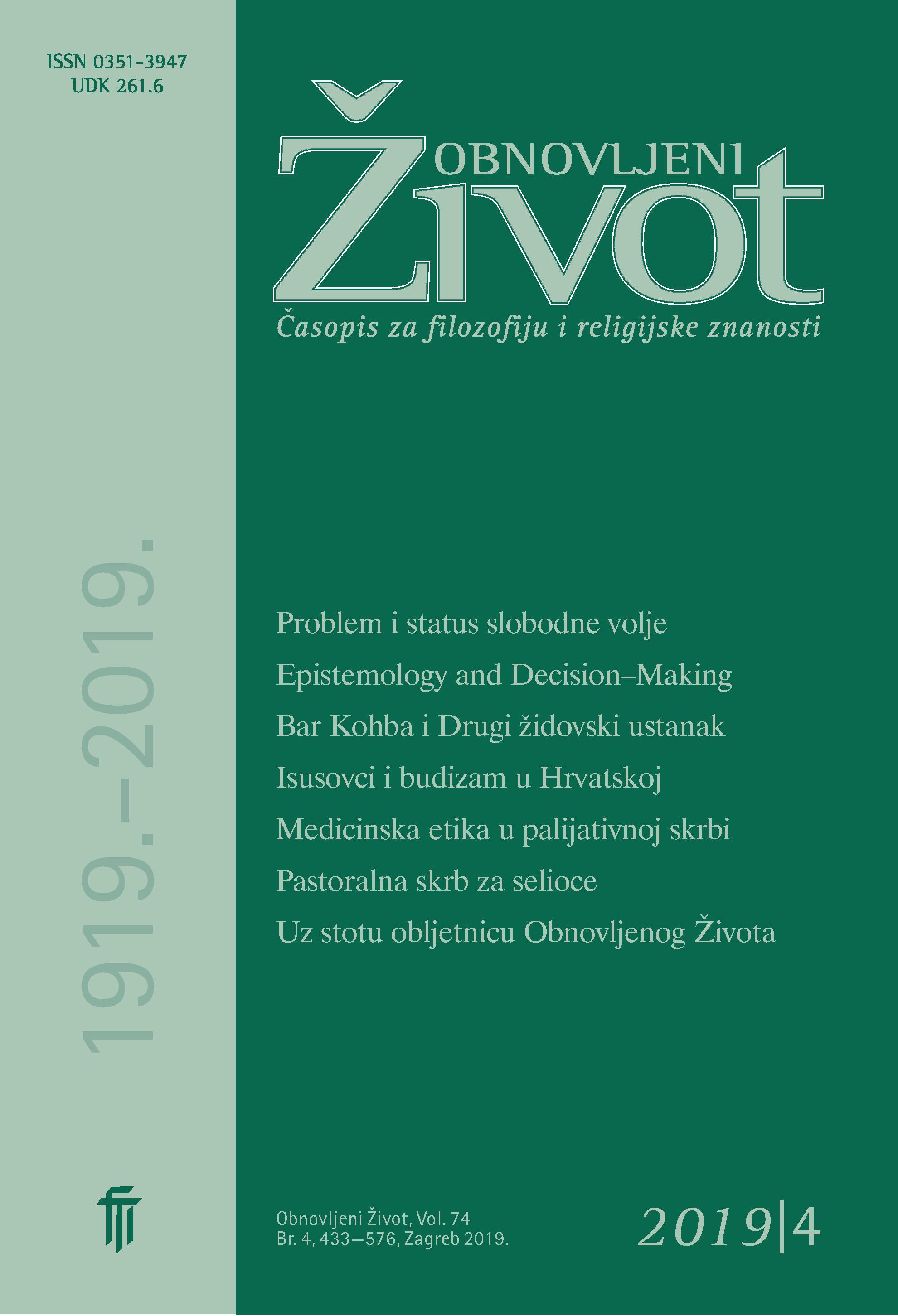Medicinska etika u palijativnoj skrbi
Keywords:
palliative medicine, palliative care, medicine, medical ethicsAbstract
Palliative care/medicine is the comprehensive active care of patients with advanced or incurable diseases and also of the members of their families. It is provided by competent interdisciplinary teams with the aim of improving the quality of life of terminally ill patients in accordance with the needs and requirements of both the patient and his/her family. „One who is leaving this earthly life should be given the same attention by the community as the tiny human being just entering this life, “ said professor Anica Jušić, MD Ph.D. (1), the founder of palliative medicine in Croatia. We must try to change the mindset in our immediate environment and create a pattern of patient–centered care. In the last twenty years, palliative medicine has taken over the medical profession and has gained in importance all over the world. This is due to the fact that it embodies the concept of care and not just treatment, thus generating general awareness of the importance of care, especially when treatment is no longer possible. Palliative medicine as a branch of medicine which studies and cares for patients with progressive, advanced diseases and a limited life expectancy takes care to optimize the quality of life in the limited remaining time and works ward the acceptance of dying as a natural event. Therefore, health professionals need the interdisciplinary support of psychologists, social workers and pharmacists in order to prevent complications by relieving pain and suffering, by helping to make dying a less painful event worthy of all who participate in it. In accordance with the Code of Medical Ethics and Deontology, one of the most important features of a medical vocation is the desire to help and care for a patient, particularly a seriously ill or diseased person.
Downloads
Published
Issue
Section
License
Jednom prihvaćeni članak obvezuje autora da ga ne smije objaviti drugdje bez dozvole uredništva, a i tada samo uz bilješku da je objavljen prvi put u Obnovljenom životu. Uredništvo će obavijestiti autora o prihvaćanju ili neprihvaćanju članka za objavljivanje.
Članci objavljeni u časopisu se, uz prikladno navođenje izvora, smiju besplatno koristiti u obrazovne i druge nekomercijalne svrhe.


